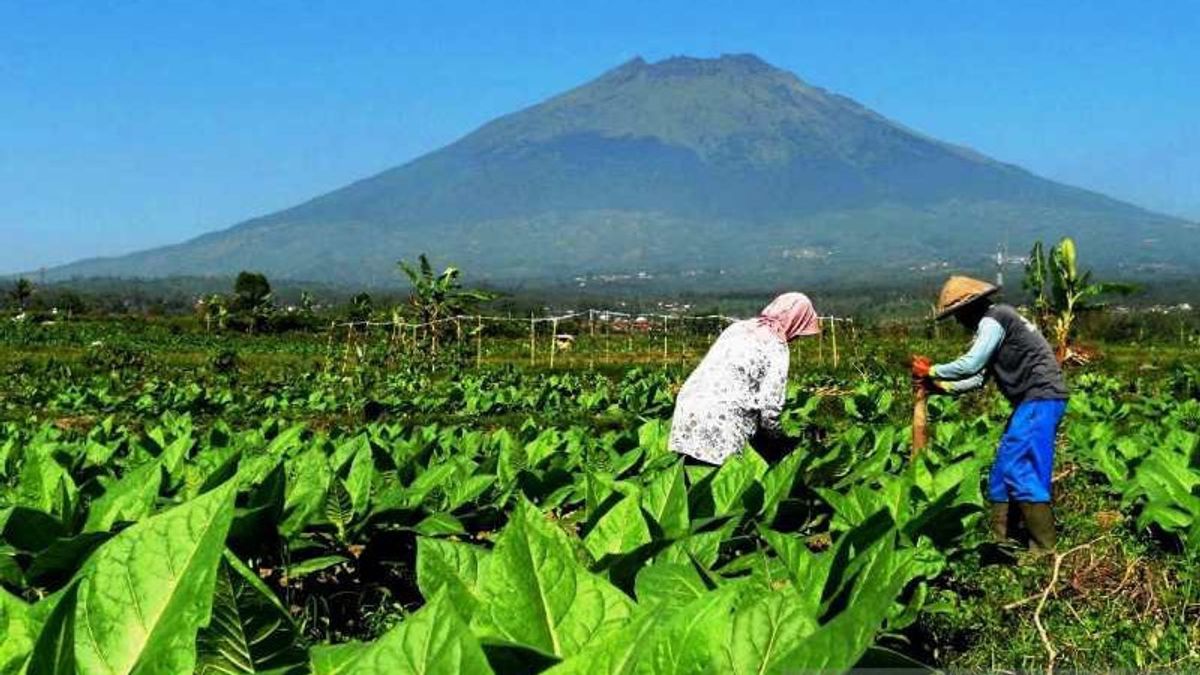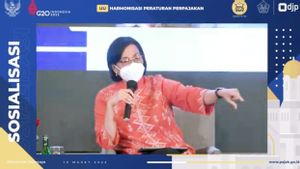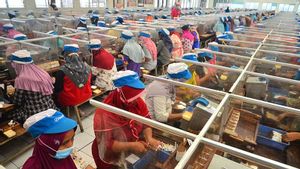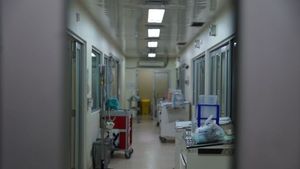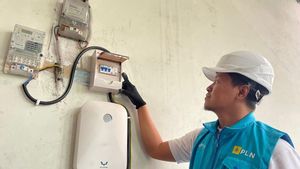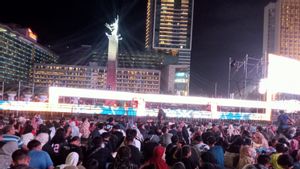KUDUS - Several local governments have complained about the government's policy on the use of revenue-sharing funds from tobacco excise (DBHCHT), which is considered very rigid and inflexible.
Even though this flexibility is considered important, the funds can be utilized more optimally in supporting the development of areas that have been known as tobacco producers.
The hope for this flexibility was conveyed by several local governments in the Pati Residency area, Central Java, while attending the socialization of the Law on Financial Relations between the Central Government and Regional Governments (UU HKPD) at the Kudus Regency Hall, Friday, March 11.
The socialization was attended by the Director-General of Fiscal Balance of the Ministry of Finance, Astera Primanto Bhakti, Director General of Budget of the Ministry of Finance, Isa Rachmatarwata, Member of Commission XI House of Representatives, Musthofa, as well as regional heads within the Pati Residency.
"Based on the regulation of the Minister of Finance in the last two years, the use of DBHCHT is very limited and cannot be used for development. Thus, the higher the DBHCHT in Kudus, the higher the remaining budget calculation (SiLPA). Moreover, the refocusing of the State Budget for the handling of COVID-19 is still being carried out", said the Regent of Kudus, Hartopo, who was also present at the outreach, as reported by Antara.
VOIR éGALEMENT:
Whereas previously, according to Hartopo, the Kudus Regency Government could still use the DBHCHT funds obtained to repair roads and develop other infrastructure. But now, according to Hartopo, this cannot be done, while the DBHCHT welfare assistance received has been maximized. "At the end what happened instead of the assisted development program, instead the SILPA funds were piling up", complained Hartopo.
Therefore, Hartopo hopes that the Ministry of Finance can re-evaluate the regulation considering that the DBHCHT is also intended to realize public welfare. With this flexibility, it is hoped that it can spur increased development in Kudus Regency.
A similar statement was also conveyed by the Regional Secretary of Grobogan Regency, Mohammad Sumarsono. He hopes that there will be flexibility in the use of DBHCHT to support development programs in the region. "So that the existence of this DBHCHT fund is also more beneficial for the community", said Sumarsono.
Responding to the complaint as well as the input, the Director-General of Fiscal Balance of the Ministry of Finance, Astera Primanto Bhakti, admitted that he would conduct further studies. However, Astera stated that the assessment process must be carried out carefully and carefully because it will have a tremendous impact.
"Because for example, the use is too wide open, everything is a block grant, of course, we will return to the past again. The results of the use of the budget are unclear", said Artera.
One form of policy utilization that is too wide open, according to Artera, is to spend the DBHCHT funds as an honorarium. This step is very possible because the disbursement of funds as honorariums is much easier, but difficult to account for.
"If it is used for (financing) road infrastructure, it can certainly be measured. Meanwhile, for honorariums, it is certainly difficult (to measure). To spend the fastest budget it is indeed used as an honorarium, namely personnel expenditure", said Artera.
Based on these considerations, continued Artera, the Ministry of Finance then reorganized so that the utilization of DBHCHT funds could be better. Artera also emphasized that in the next five years after the new policy is implemented, there will of course be evaluations and it is very possible to make improvements so that the utilization of DBHCHT can be more targeted and beneficial to the wider community.
The English, Chinese, Japanese, Arabic, and French versions are automatically generated by the AI. So there may still be inaccuracies in translating, please always see Indonesian as our main language. (system supported by DigitalSiber.id)
